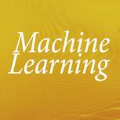Intelligent entities such as self-driving vehicles, with their data being processed by machine learning units (MLU), are developing into an intertwined part of networks. These units handle distorted input but their sensitivity to noisy observations varies for different input attributes. Since blind transport of massive data burdens the system, identifying and delivering relevant information to MLUs leads in improved system performance and efficient resource utilization. Here, we study the integer bit allocation problem for quantizing multiple correlated sources providing input of a MLU with a bandwidth constraint. Unlike conventional distance measures between original and quantized input attributes, a new Kullback-Leibler divergence based distortion measure is defined to account for accuracy of MLU decisions. The proposed criterion is applicable to many practical cases with no prior knowledge on data statistics and independent of selected MLU instance. Here, we examine an inverted pendulum on a cart with a neural network controller assuming scalar quantization. Simulation results present a significant performance gain, particularly for regions with smaller available bandwidth. Furthermore, the pattern of successful rate allocations demonstrates higher relevancy of some features for the MLU and the need to quantize them with higher accuracy.
翻译:自驾驶车辆等智能实体,其数据由机器学习单位处理,正在发展成为网络中一个相互交织的部分。这些单位处理扭曲的投入,但对于噪音观测的敏感性因输入属性不同而各异。由于系统失明地传输大量数据,确定并向MLU提供相关信息,从而导致系统性能和高效资源利用的改善。这里,我们研究提供带宽限制的 MLU 输入的多个相关量化源的整数点分配问题。不同于原始输入属性和量化输入属性之间的常规距离测量,新的基于 Kullback-Leibell的偏差测量标准被确定为计算MLU决定的准确性。拟议标准适用于许多没有数据统计知识且独立于选定的 MLU 实例的实用案例。在这里,我们检查了一台配有神经网络控制器的、假设卡路里定分数的马车的倒转弯曲曲。模拟结果显示一个显著的性能增益,对于现有带宽度较小的区域尤其如此。此外,成功率分配模式显示MLU 某些特性的高度。



